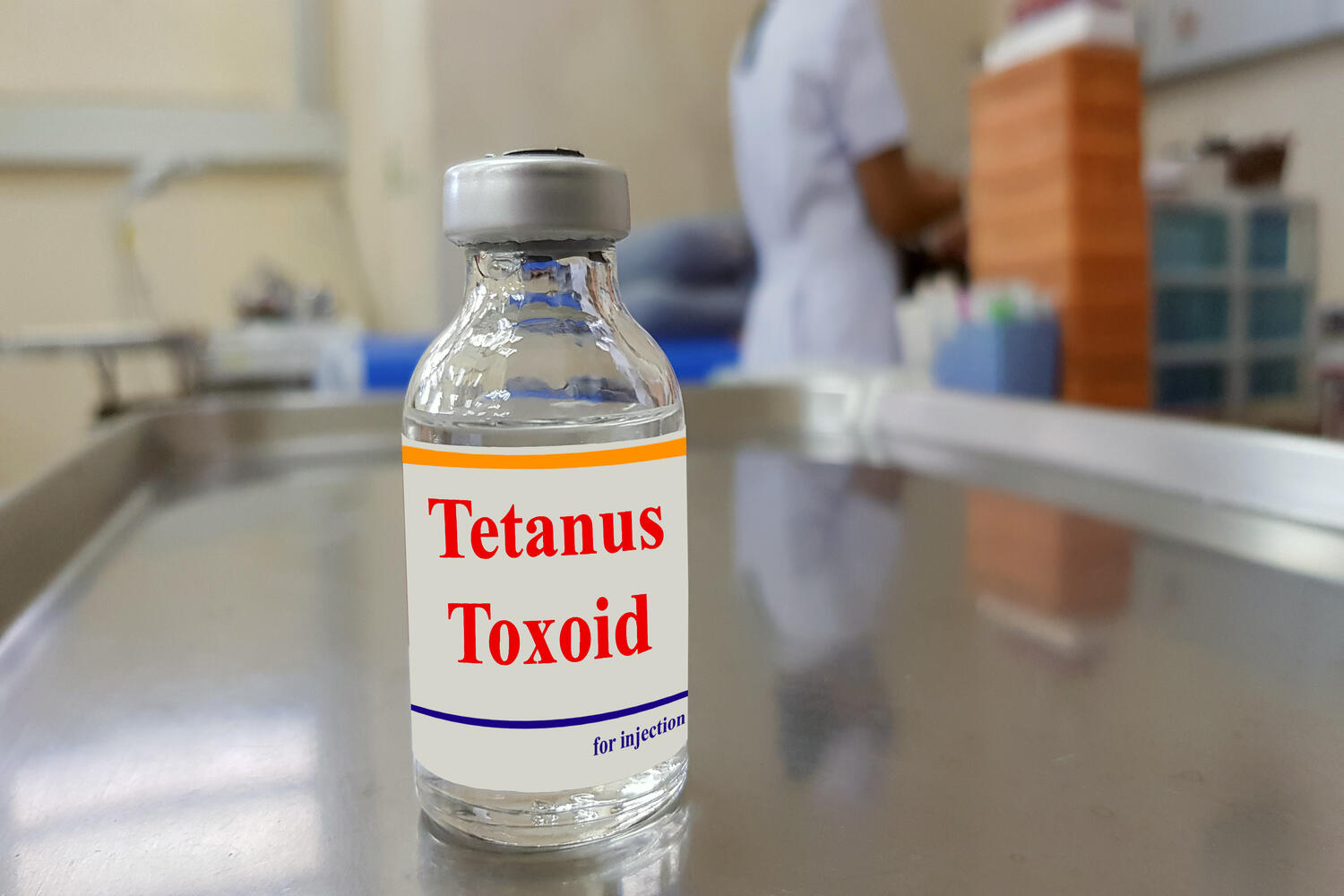 TT injection during pregnancy is a mandatory and life-saving immunization. Tetanus is a fatal disease caused by the bacteria that comes from soil and dust. It often enters our body through an open cut or scratch and release a toxin called tetanospasmin. However, this disease is easily preventable with TT injections, especially during the immunologically vulnerable period of pregnancy.
TT injection during pregnancy is a mandatory and life-saving immunization. Tetanus is a fatal disease caused by the bacteria that comes from soil and dust. It often enters our body through an open cut or scratch and release a toxin called tetanospasmin. However, this disease is easily preventable with TT injections, especially during the immunologically vulnerable period of pregnancy.
TT injection during pregnancy is extremely necessary for the protection of both the mother and the unborn baby. But to get its maximum benefits you need to know when and how you should take the tetanus injection during pregnancy. You will also need to know the safety measures and possible side effects of taking TT injections during pregnancy to safeguard yourself. So let’s start.
In This Article
- What Is A TT Injection?
- Is Tetanus Toxoid Vaccine Safe In Pregnancy?
- Why Do You Need The TT Injection?
- Steps You Should Take Before Taking The TT Vaccine
- When Should Pregnant Women Take Tetanus Injection?
- What Are the Side Effects of TT Injection During Pregnancy?
- FAQ’s
What Is A TT Injection?
A TT injection or Tetanus Toxoid injection is a vaccine you need as a protection against the bacterial infection of tetanus or lockjaw.The tetanospasmin toxin travels in our bloodstream and targets the neurological system to cause muscle stiffness, breathing difficulty, lockjaw, rapid heart rate, paralysis and other life-threatening problems.
In Tetanus Toxoid injections, some purified and inactivated toxin strains of the Clostridium tetani bacteria are used to trigger our immune response [1]. The stains of the bacteria used in the TT vaccine are sterilized and hence lack pathogenic properties to cause the Tetanus infection. Its purpose is to gently trigger the production of antibodies to prepare and fight back against any similar actual situation. Often the TT vaccine is given with a combination of other vaccines like diphtheria toxoid and acellular pertussis together which is called Tdap [2].
Is Tetanus Toxoid Vaccine Safe In Pregnancy?
 Yes, the tetanus toxoid vaccine is generally safe during pregnancy. You can take the TT vaccine anytime safely in your pregnancy. Though for the maximum immunization of the newborn against tetanus doctors advise to take the last shot of TT or Tdap injection anytime between 27 to 37 weeks of pregnancy [3].It will be good to take the last TT shot at least two weeks before your due date. This will give enough time for the production and transportation of antibodies against tetanus from your bloodstream to your baby’s.
Yes, the tetanus toxoid vaccine is generally safe during pregnancy. You can take the TT vaccine anytime safely in your pregnancy. Though for the maximum immunization of the newborn against tetanus doctors advise to take the last shot of TT or Tdap injection anytime between 27 to 37 weeks of pregnancy [3].It will be good to take the last TT shot at least two weeks before your due date. This will give enough time for the production and transportation of antibodies against tetanus from your bloodstream to your baby’s.
Hence if your baby gets an accidental cut during the delivery or afterwards, the life-threatening tetanus infection will not occur. Taking the immediate tetanus toxoid vaccine during pregnancy becomes mandatory when you get a deep-cut wound or burn on your skin [4]. You should also take TT injections before opting for any surgery during pregnancy or abortion. You can get mild symptoms of weakness or uneasiness after the vaccination but the benefit it provides is far beyond the troubles.
Why Do You Need The TT Injection?
You need TT injection because it is the only prevention against maternal and neonatal tetanus [5]. According to the CDC report, in almost all cases tetanus occurs when the person is not vaccinated against it. That is why in most countries tetanus vaccination is a part of the childhood immunization schedule. But if the lady does not complete her tetanus vaccination doses or has a tetanus-threatening wound or unsafe abortion then it is important to take a tetanus injection to eliminate tetanus risks.
TT injection during pregnancy is also needed to avoid neonatal tetanus. Tetanus infection in newborns can occur due to using unsterilized medical instruments and unhealed umbilical cord [6]. If you get a tetanus vaccine during the last few weeks of pregnancy then the antibodies and immunoglobulins against the bacteria travel to your baby’s blood. Hence the baby gets protected against tetanus for weeks after birth. This is essential, especially in rural areas where childbirth takes place in unsafe or unhygienic conditions.
Steps You Should Take Before Taking The TT Vaccine
 Now that you know the importance of TT injections for you and your upcoming baby do not avoid TT vaccine. Here are the steps you should take before taking the TT vaccine;
Now that you know the importance of TT injections for you and your upcoming baby do not avoid TT vaccine. Here are the steps you should take before taking the TT vaccine;
1. Have A Detailed Conversation With Your Doctor
Your doctor should know your immunization and allergic history before proceeding. This will help them to take immediate action if you get any negative reaction.
2. Share Your Medical History
Inform your doctor about any recent illness, treatment or medications you take that can create complications. If you have a recent fever or allergic reaction then the doctor can delay the date of your vaccination [7].
3. Schedule Time For Different Doses
Adults should have a booster dose of the TT vaccine every 10 years. If you did not have any in the past 10 years then you may need two doses. There should be at least a time gap of 4 weeks between the first and the second dose of TT vaccine. Book your vaccination day by keeping these in mind.
4. Schedule A Convenient Time
Take the vaccine at a time that suits you to rest for the next few hours. Go to the clinic to take the vaccine after your breakfast then come back home have your lunch and rest for 2 hours. It will be best if you can take a day off and rest after the vaccination.
5. Opt For A Hygienic Clinic
Look for the cleanliness standards of the clinic. Be attentive about whether the practitioner uses a new syringe and a sealed vial of vaccine. You can even ask for the practitioner to come to your place for the vaccination.
By following these steps before taking the TT vaccine you can ensure maximum safety, comfort, and hygiene for yourself.
When Should Pregnant Women Take Tetanus Injection?
You can take a tetanus injection anytime during your pregnancy. But it is better to give around a 90-day gap between the first and the second dose of the vaccine [8]. There should be a minimum gap of 4 weeks between two doses of TT injections. The time and dose of tetanus injection during pregnancy depend on the number of previous pregnancies and the gap between them. In different conditions, the time of taking a tetanus injection will differ.
For Women With First Pregnancy With No Tt Vaccine In The Past 10 Years
In such case, the doctor will advise you three doses of the TT vaccine. You can take the first dose anytime between 0 to 4 weeks of pregnancy. You can take the second dose of TT injection anytime between 3 to 6 months of pregnancy. And for 3rd and last dose of TT injection secure the time between 27 to 36 weeks. Note that for maximum neonatal protection against tetanus injection, the mother needs to take the TT vaccine before 36 weeks.
For Women With Previous Pregnancy In Less Than 3 Years With A TT Vaccine
In this case, you will require only one shot of TT vaccine that you can take between 27 to 36 weeks of pregnancy for maximum benefits.
For Women With A Previous Pregnancy Of More Than 3 Years With A TT Vaccine
Here again, you will be advised to take 2 doses of TT vaccine. You can take the first in your second trimester, the relatively blissful period of pregnancy. And for the second dose, you can take it anytime between 27 to 36 weeks.
Talk to your doctor for more clarity about when you should take tetanus injections during pregnancy. Your doctor will decide the suitable time and number of doses for your TT shots after analyzing your vaccination card.
What Are the Side Effects of TT Injection During Pregnancy?
 There are no serious side effects of TT injections during pregnancy. You can get mild to moderate symptoms as your body develops immunity against the bacteria. The side effects of TT injection are negligible in comparison to the benefits it offers to you. Here are some side effects of TT injection during pregnancy (12);
There are no serious side effects of TT injections during pregnancy. You can get mild to moderate symptoms as your body develops immunity against the bacteria. The side effects of TT injection are negligible in comparison to the benefits it offers to you. Here are some side effects of TT injection during pregnancy (12);
- Mild fever between 100 to 102 degrees F or 38 to 39 degrees C
- Headache and body pain
- Fatigue
- Loss of appetite
- Redness, swelling, pain and tenderness at the site of injection
- In rare cases, allergic reactions
- Ringing in the ears or tinnitus with dizziness
Usually, these symptoms stay for two to three days and resolve on their own without any medicinal aid. These are your body’s natural response against any unknown microbial substance or toxins. However, as the bacteria used in TT injections are inactive or dead bacteria they will not trigger any tetanus infection.
So TT injections are a must when you are pregnant. There are no developmental risks or adverse effects of TT vaccines for you and your baby during pregnancy. So you can take it without worry. Taking TT injections during pregnancy will protect your baby in the neonatal stage before he/she gets his/her own TT vaccine. So do not avoid or neglect TT injections during pregnancy for the sake of your baby.
FAQ’s
1. How Many TT Injections Are Given During Pregnancy?
You will be given 2 doses of TT injections during your pregnancy if this is your first pregnancy or if the duration between your previous pregnancy is more than 3 years. But if the duration between your previous pregnancy is less than 3 years then you will be given only 1 dose this time.
2. Who Should Not Take TT Injections?
You should not take TT injections or at least take precautions before taking them if you have a severe reaction against such vaccines. If you have a bleeding disorder, nervous problems, seizures, and Guillain Barré Syndrome then you need to inform your doctor.
References:-
1. Tetanus Toxoid
[https://www.ncbi.nlm.nih.gov/books/NBK557415/ ]
2. Diphtheria Tetanus Pertussis (DTaP) Vaccine
[https://www.ncbi.nlm.nih.gov/books/NBK545173/]
3. Update on Immunization and Pregnancy: Tetanus, Diphtheria, and Pertussis Vaccination
[https://www.acog.org/clinical/clinical-guidance/committee-opinion/articles/2017/09/update-on-immunization-and-pregnancy-tetanus-diphtheria-and-pertussis-vaccination]
4. Update on Immunization and Pregnancy: Tetanus, Diphtheria, and Pertussis Vaccination
[https://www.acog.org/clinical/clinical-guidance/committee-opinion/articles/2017/09/]
5. Tetanus Vaccination
[https://www.cdc.gov/vaccines/vpd/tetanus/index.html]
6. Tetanus
[https://www.who.int/news-room/fact-sheets/detail/tetanus]
7. Contraindications and Precautions
[https://www.cdc.gov/vaccines/hcp/acip-recs/general-recs/contraindications.html]
8. Timing of antenatal tetanus immunization for effective protection of the neonate
[https://pubmed.ncbi.nlm.nih.gov/6601539/]

